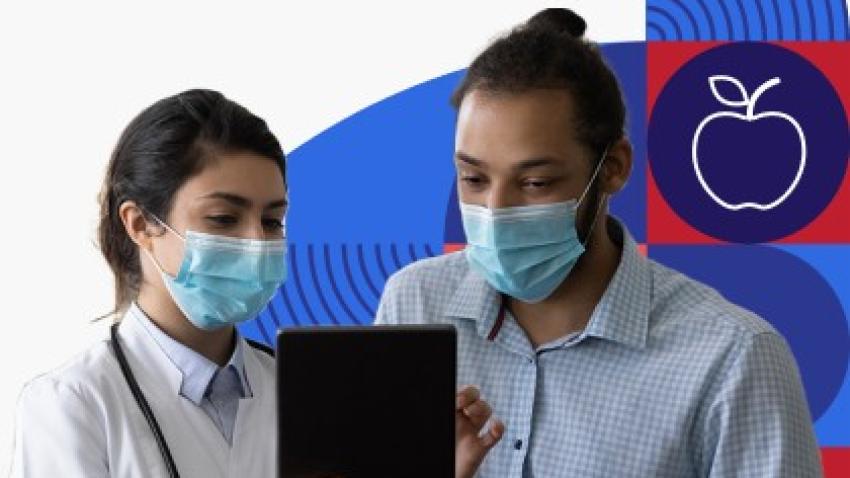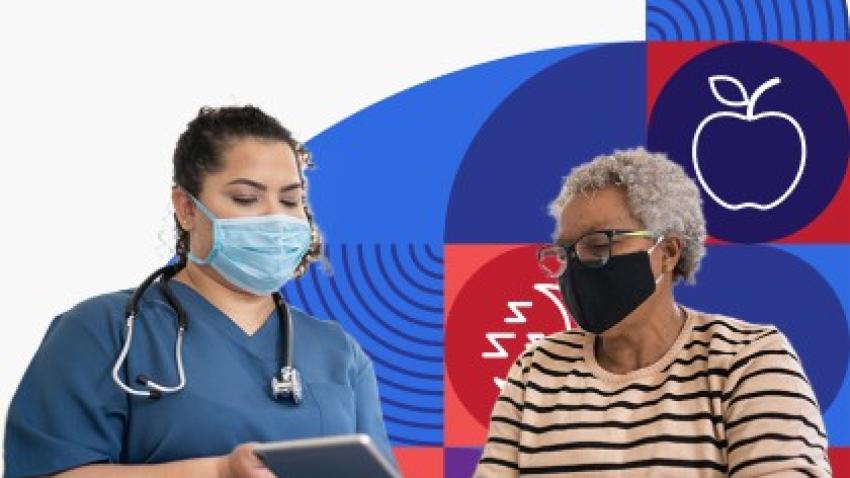Doctor Visits
Find and Access Preventive Services

The Basics
Overview
Preventive services include health care like screening tests, checkups, and vaccines. Unlike the care you get when you’re sick or managing a long-term condition, preventive care can help stop you from getting sick in the first place — or it can find health problems before they get worse, even before you have symptoms.
Why do I need preventive care?
There are lots of great reasons to get preventive care. It can:
- Save your life. Screening tests and checkups can find health problems early, when they may be easier to treat. This includes serious diseases like cancer.
- Prevent disease. Some preventive services can keep health problems from developing. This includes vaccines and screenings for certain cancers, like cervical cancer.
- Help you save money. Finding and treating health problems early can help you avoid costly medical bills down the road. Plus, most insurance plans cover preventive services, and there are free or low-cost options if you don’t have insurance.
- Offer peace of mind. Regular checkups are a chance for you to share concerns and ask questions about your health — and to get support from a doctor or other health care professional.
Take Action
How to Get Preventive Care
Make an appointment with your doctor.
Talking with your doctor or nurse is a great first step to getting preventive care. They can tell you which screenings, vaccines, or other services you need — and answer any questions you may have. Together, you can make a plan to protect your health.
Looking for a new doctor or nurse? Use these tips to find the right fit.
Find free or low-cost preventive care.
Most health insurance plans cover preventive services at no cost to you — usually without a copay or deductible.
But even if you don’t have health insurance, you can still get free or low-cost preventive care. Try these tips:
- Visit a community health center or clinic. Community health centers and clinics can offer affordable — or even free — preventive care. Find a health center near you.
- Contact your local health department. Many health departments offer free health services, like flu vaccines, to people in the community. Your health department can also give advice on where to find additional free or low-cost health care services in your area. Use this interactive map to find your local health department.
- Look for volunteer clinics. Some communities offer free clinics run by volunteers for people who don’t have health insurance. Find a volunteer clinic near you.
- Ask your local hospital about free screenings. Many hospitals offer free screening events. Contact your hospital’s customer service or community outreach department to learn what options are available.
If you’re getting health care through the Indian Health Service (IHS), use this tool to find preventive care near you. And if you’re a Veteran, you can get care at a VA location in your area.
Look for free screening and testing programs for specific diseases.
There are also some free or low-cost programs to help you get screened or tested for specific diseases. For example:
- Screening for breast and cervical cancer: National Breast and Cervical Cancer Early Detection Program (NBCCEDP)
- Testing for HIV, STIs (sexually transmitted infections), and hepatitis: Get Tested search tool
Learn about insurance coverage for preventive services.
If you have private health insurance:
Private health insurance means you’re getting your insurance through an employer or the Health Insurance Marketplace. Under the Affordable Care Act, private health insurance plans must cover many preventive services. Depending on your insurance plan and other factors like your age, you may be able to get these and other preventive services at no cost to you:
- Blood pressure, diabetes, and cholesterol tests
- Many cancer screenings, including mammograms and colonoscopies
- Counseling on topics like quitting smoking, losing weight, eating healthy, treating depression, and drinking less alcohol
- Vaccines to protect against diseases like the flu, whooping cough, measles, and meningitis
- Counseling, screening, and vaccines to help you have a healthy pregnancy
- Regular well-baby and well-child visits
Keep in mind that you may be charged a portion of the cost if a preventive service isn’t the main reason for your doctor’s visit or if you’re seeing an out-of-network provider. To avoid unexpected medical bills, ask your doctor before your appointment what services will be covered — or check with your insurance company.
To learn more, check out these resources about:
- Free preventive care covered by the Affordable Care Act
- How the Affordable Care Act protects you
- Understanding your health insurance and how to use it [PDF - 698 KB]
If you have Medicaid:
Medicaid covers certain preventive services at no cost, like vaccines and recommended screenings and tests. It also covers counseling to help you manage long-term health conditions and support healthy changes, like quitting smoking. You can:
- Find out more about getting preventive care through Medicaid
- Contact your state’s Medicaid agency for detailed information
If you have Medicare:
Medicare also covers certain preventive services at no cost. To learn about Medicare and preventive care:
If you’re uninsured, explore options for getting health insurance.
There are different options for getting health insurance coverage — and it may be more affordable than you think. To get started, you can:
- Check to see if you’re eligible for Medicaid. The Medicaid program provides health insurance for families with low incomes, pregnant people, people with disabilities, and people in certain other groups. Find Medicaid coverage in your state.
- Enroll your children in CHIP. The Children’s Health Insurance Program (CHIP) covers children in families that earn too much money to qualify for Medicaid but not enough to afford private health insurance. Learn more about CHIP.
- Explore the Health Insurance Marketplace. The Marketplace offers health insurance plans for anyone who needs it. How much you’ll pay for coverage depends on how much money your family earns. Read this quick guide to Marketplace coverage or find local help.
Content last updated June 7, 2024
Reviewer Information
This information on preventive services was adapted from materials from the U.S. Department of Health and Human Services and the Centers for Medicare & Medicaid Services.
Reviewed by:
U.S. Department of Health and Human Services’ Office of Disease Prevention and Health Promotion Review Team.


